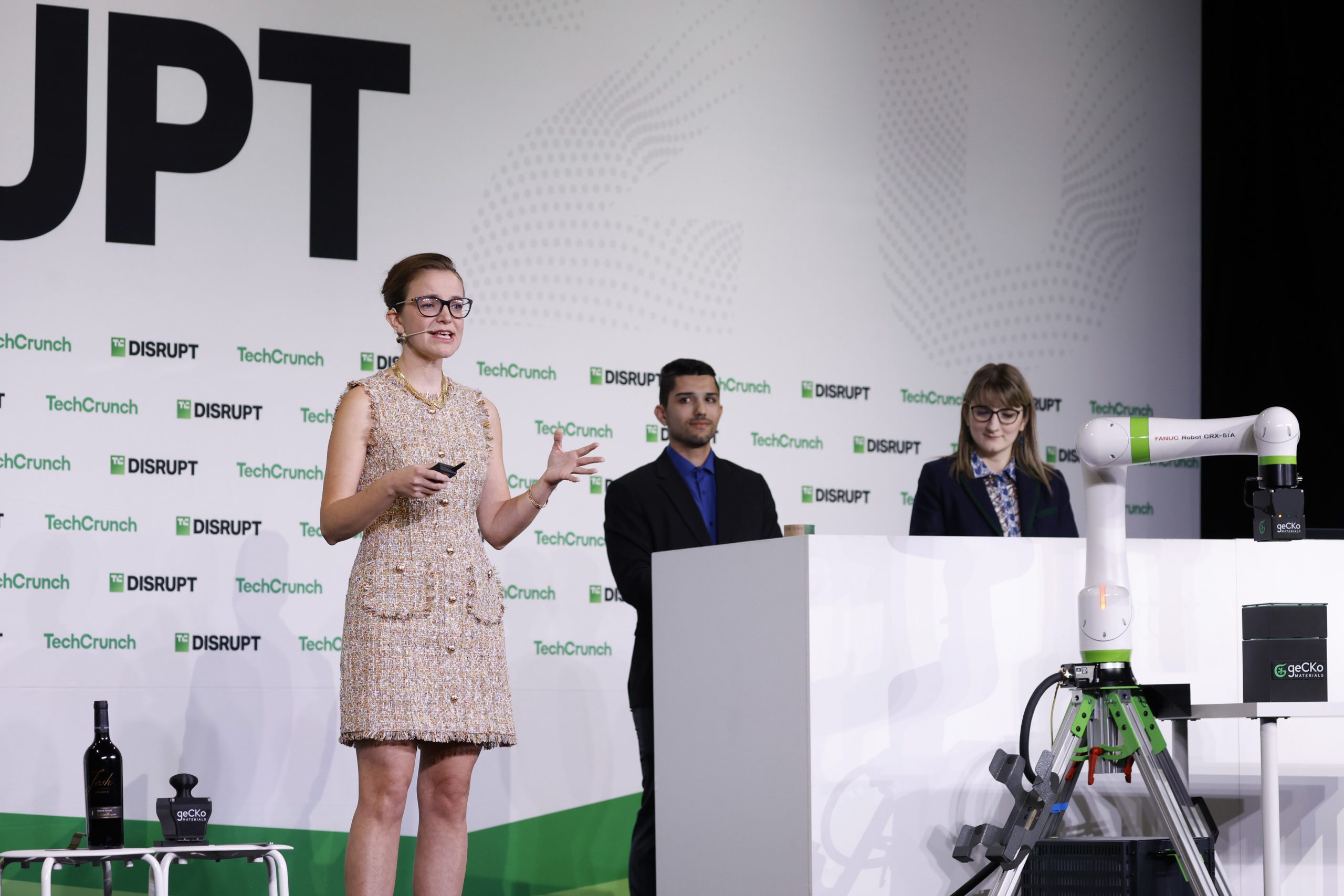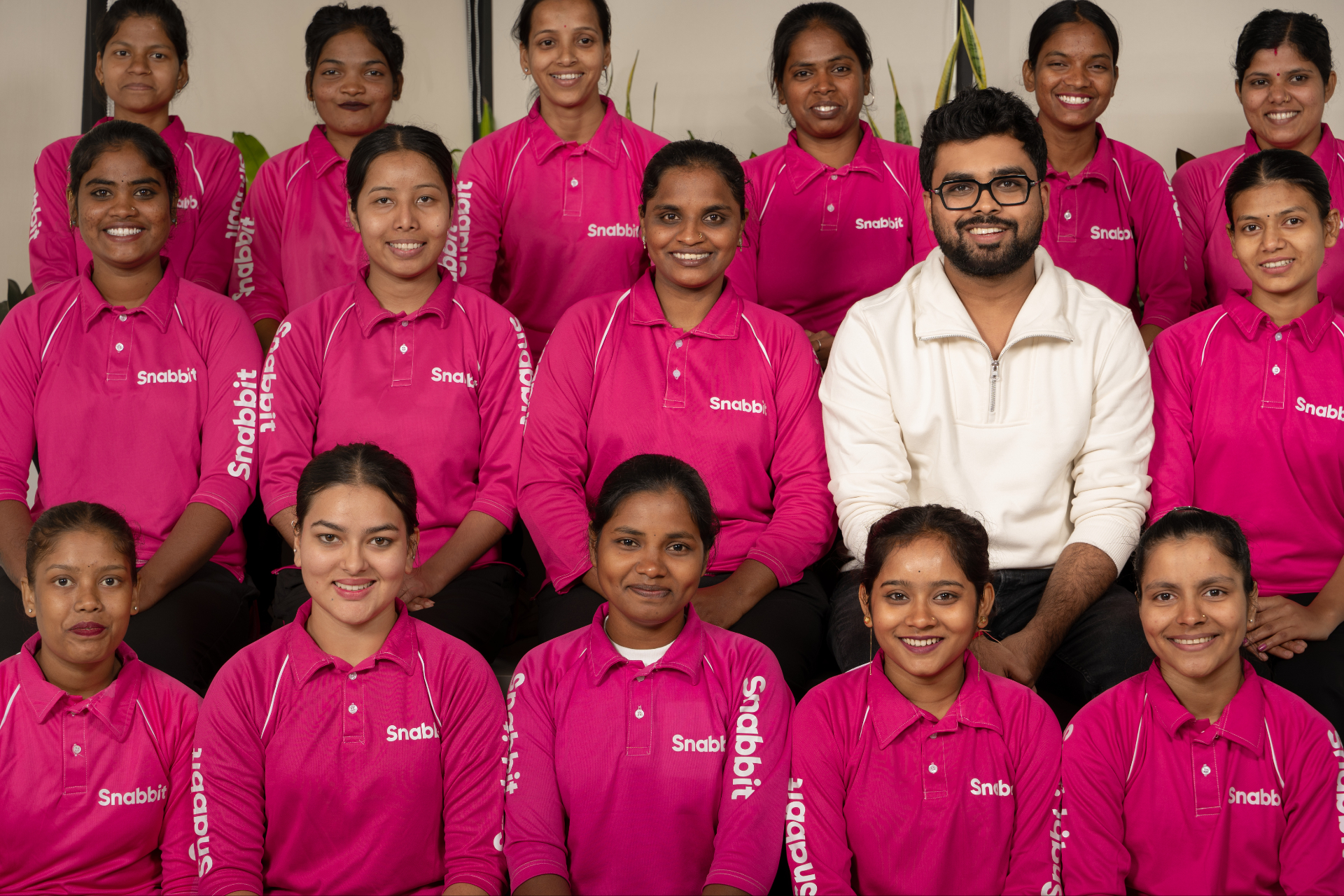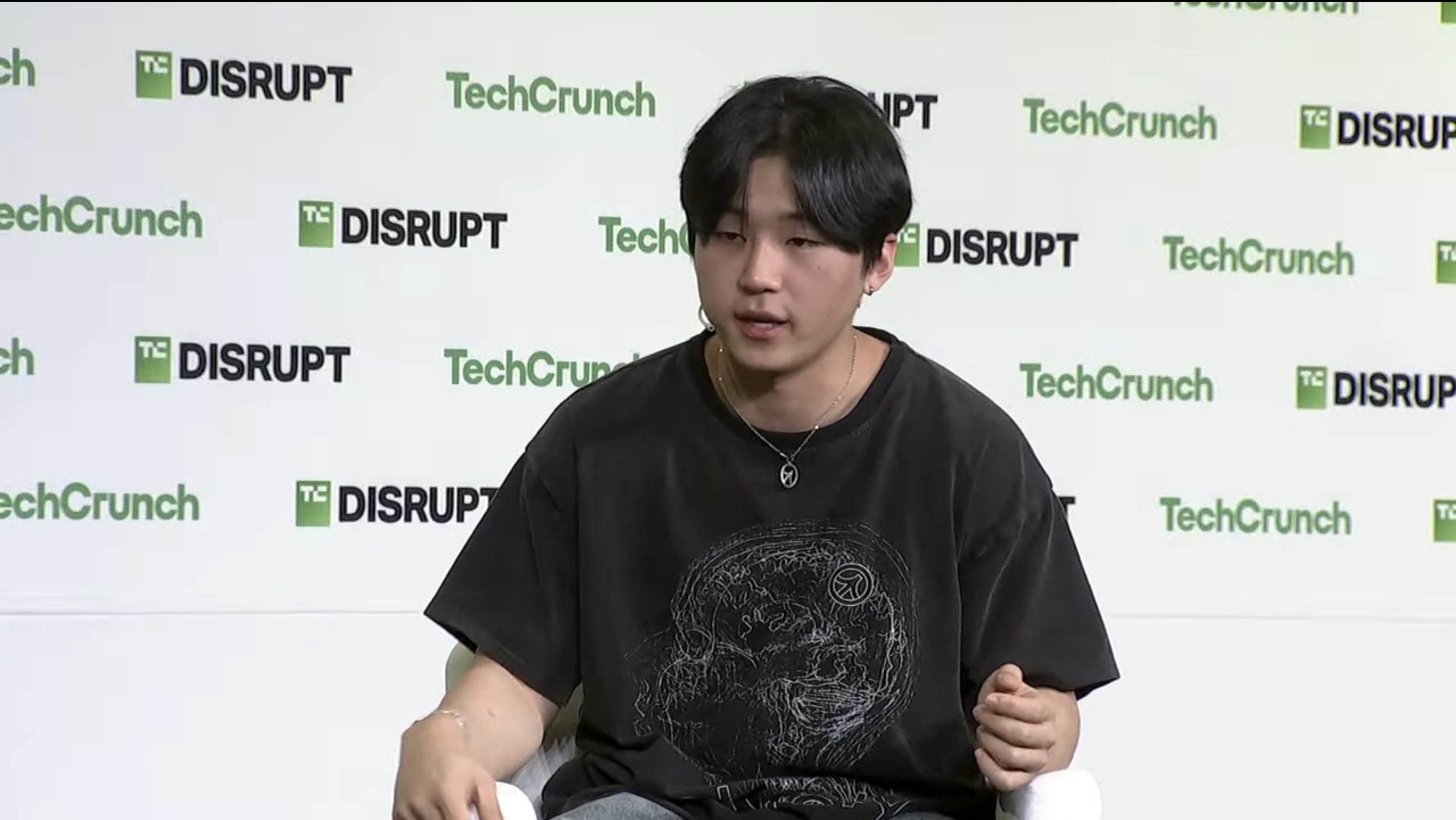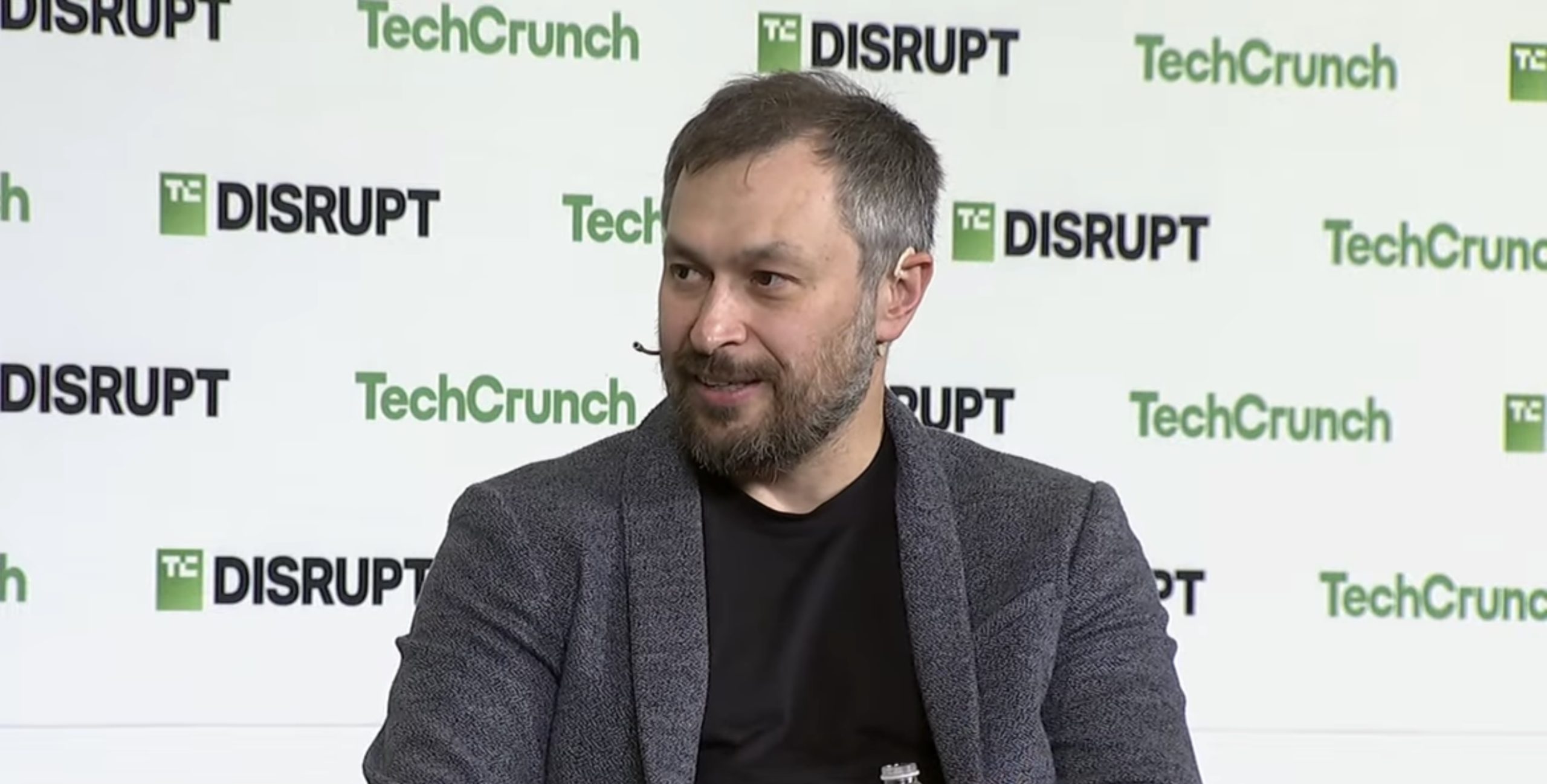
In a significant stride for industrial innovation, geCKo Materials, a distinguished runner-up in the 2024 TechCrunch Disrupt Startup Battlefield, returned to the prominent technology conference this year to unveil four groundbreaking applications of its super-strong dry adhesive technology. These new products are set to push the boundaries of commercialization for the company’s bio-inspired solutions, addressing critical challenges across various sectors from high-tech manufacturing to heavy industry.
The Genesis of a Breakthrough: Bio-Inspired Adhesion
At the core of geCKo Materials’ disruptive technology lies an ingenious replication of nature’s design marvel: the gecko’s foot. For centuries, scientists have marveled at the gecko’s ability to cling effortlessly to almost any surface, a feat attributed to millions of microscopic hairs, or setae, on their feet. These setae interact with surfaces at a molecular level through van der Waals forces, creating a powerful yet easily releasable adhesion without the need for sticky residues or chemical bonding. This natural mechanism has long been a holy grail for material scientists seeking to develop reusable, residue-free adhesives.
The pursuit of synthetic gecko adhesion has a rich history, with research intensifying significantly in the late 20th and early 21st centuries. Early attempts often struggled with issues like durability, scalability, and the ability to function effectively in diverse environments. Traditional industrial gripping solutions, such as suction cups, mechanical clamps, or chemical adhesives, frequently present significant drawbacks. Suction cups require air pressure and struggle with porous or dusty surfaces, while mechanical grippers can damage delicate objects or are limited by shape. Chemical adhesives, though strong, are typically single-use, leave residue, and can contribute to waste. geCKo Materials’ innovation, pioneered by founder Dr. Capella Kerst, represents a significant leap forward, translating this complex biological principle into a robust, engineered solution for real-world industrial applications. The company’s dry adhesive material distinguishes itself by offering rapid attachment and detachment, requiring no electrical charge or suction, and leaving no trace upon removal. Demonstrating remarkable strength and endurance, a mere one-inch square tile of the material is capable of securely holding 16 pounds, and its durability allows for an astonishing 120,000 attachment and detachment cycles, with adhesion lasting anywhere from mere seconds to several years, depending on the application.
Expanding the Industrial Frontier: New Product Applications
Dr. Kerst, CEO of geCKo Materials, showcased the versatility and potential impact of their technology by introducing four distinct new products, each tailored to address specific industrial demands:
1. Precision Semiconductor Wafer Handling Tool:
The semiconductor industry operates at the pinnacle of precision and cleanliness, where even microscopic imperfections can render a chip useless. The handling of delicate silicon wafers, the foundational elements of integrated circuits, is a particularly sensitive process. Traditional methods, often relying on vacuum suction or mechanical edge gripping, carry inherent risks: vacuum systems can introduce particulate contamination or struggle with micro-perforations, while mechanical clamps risk micro-fractures or damage to the wafer’s edge. The demand for ever-faster processing speeds in manufacturing lines further exacerbates these challenges.
geCKo Materials’ new wafer handling tool leverages its dry adhesive to offer an unprecedented combination of speed and safety. Dr. Kerst highlighted that major customers like TSMC, Samsung, Intel, and Kawasaki had set a goal for wafer movement at 2Gs of acceleration. geCKo’s solution reportedly shattered this benchmark, achieving 5.4Gs of acceleration repeatedly and reliably. This dramatic increase in acceleration capabilities, combined with the residue-free, non-damaging grip, has the potential to significantly enhance throughput, reduce breakage, and improve overall yield in an industry where every fraction of a percentage point matters. This innovation could be a pivotal factor in meeting the escalating global demand for microchips, driving efficiency gains across the entire supply chain.
2. Robotic Gripper for Smooth Surfaces:
Industries dealing with large, smooth, and often fragile materials, such as solar panels, glass sheets for construction or automotive, and polished metal plates, face unique challenges in robotic handling. The large surface area and smooth texture make traditional gripping difficult, while the fragility necessitates gentle yet firm handling to prevent breakage. Existing solutions often involve complex vacuum systems that consume significant energy or mechanical grippers with limited surface contact area, increasing the risk of slippage or damage.
The new geCKo robotic gripper specifically designed for smooth surfaces provides a compelling alternative. Its dry adhesion technology enables a robust, full-surface contact grip that distributes pressure evenly, minimizing stress points. This is particularly beneficial for the burgeoning solar energy sector, where the efficient and safe handling of photovoltaic panels is crucial for automated assembly and installation processes. Similarly, in glass manufacturing and automotive production, this gripper could streamline operations, reduce waste from damaged materials, and enhance worker safety by automating the handling of heavy, unwieldy objects.
3. Curved Robotic "End Effector" for Irregular Shapes:
Industrial automation has made tremendous strides, but handling objects with irregular or non-uniform geometries remains a significant hurdle. Standard robotic grippers are typically designed for symmetrical or predictable shapes, often struggling with components found in aerospace, complex automotive parts, or diverse items in e-commerce fulfillment centers. The inability to securely grip varying contours limits the flexibility and scope of automated processes.
geCKo Materials addresses this limitation with its curved robotic "end effector." This specialized gripper is engineered to conform to the unique contours of irregular shapes, providing a secure, adaptable hold. By mimicking the gecko’s ability to adhere to varied textures and curves, this end effector expands the range of objects that can be handled robotically. This innovation could unlock new levels of automation in industries where manual handling is still prevalent due to object complexity, leading to increased efficiency, improved ergonomics for human workers, and greater consistency in manufacturing and logistics.
4. All-Purpose Gripper for Robotic Arms:
The ultimate goal for many robotic applications is versatility – a single tool capable of performing a wide array of tasks. The need to switch out specialized grippers for different objects can add complexity, cost, and downtime to automated systems. An all-purpose solution that can reliably handle a broad spectrum of materials and shapes would significantly simplify robotic deployments and increase their utility.
The all-purpose gripper introduced by geCKo Materials aims to be this versatile solution. Designed for seamless integration with existing robotic platforms, such as the Fanuc arm demonstrated by Dr. Kerst onstage, it promises adaptability across numerous applications. This gripper’s ability to quickly and securely manipulate diverse objects—from the delicate to the robust—without leaving residue or requiring external power sources, positions it as a transformative component for the next generation of industrial robotics. Its potential impact extends across manufacturing, warehousing, and logistics, offering a flexible and efficient alternative to current multi-tool setups.
A Year of Rapid Growth and Validation
The unveiling of these new products follows a period of remarkable growth and significant validation for geCKo Materials. Reflecting on the past year since their appearance at the Startup Battlefield, Dr. Kerst noted the company’s rapid expansion, stating, "Has this year flown by as quickly for anybody else as it has for us?" This sentiment was underscored by concrete achievements: the company has tripled the size of its team, indicating a rapid scaling of operations and a growing demand for its expertise. Furthermore, geCKo Materials successfully completed an $8 million fundraise, providing substantial capital to fuel its continued research, development, and commercialization efforts.
Perhaps one of the most compelling endorsements of the technology’s robustness comes from its deployment in extreme environments. Over the past year, geCKo’s dry adhesive was utilized on six space missions. This achievement is a powerful testament to the material’s ability to perform reliably under challenging conditions, particularly in the vacuum of space where traditional suction-based grippers are ineffective and lubricants or outgassing materials are unacceptable. Early adoption by industry giants like Ford, NASA, and Pacific Gas & Electric, even before the company’s Startup Battlefield appearance, further solidified its credibility and market potential. These strategic partnerships highlight the broad applicability of geCKo’s technology, from advanced manufacturing in the automotive sector to critical infrastructure and cutting-edge space exploration.
The Competitive Landscape and Future Outlook
geCKo Materials enters a competitive landscape dominated by established gripping technologies, yet it carves out a distinct niche through its unique advantages. Unlike pneumatic suction cups that are limited by surface porosity and require energy, or mechanical claws that risk damaging delicate objects, geCKo’s dry adhesive offers a non-damaging, residue-free, and energy-efficient solution. Its high cycle life also sets it apart from single-use adhesives. While challenges such as initial cost, scalability of production to meet mass demand, and performance on highly dusty or extremely rough surfaces might be considerations, the company’s rapid commercialization and adoption by major players suggest that the perceived value outweighs these factors for many critical applications.
The broader market and social impact of this technology are substantial. By enhancing the capabilities of robotic systems, geCKo Materials can contribute to improved worker safety by automating the handling of heavy, fragile, or hazardous materials. It can also drive significant increases in productivity and efficiency across manufacturing and logistics, enabling new forms of automation previously deemed impractical. From a sustainability perspective, reusable, residue-free adhesives could reduce waste associated with single-use glues and tapes. Dr. Kerst’s vision positions this dry adhesive not just as an industrial component but as a potential "new form of Velcro," implying a future where its applications could extend far beyond current industrial uses, potentially influencing consumer products and everyday life.
In conclusion, geCKo Materials stands as a prime example of how bio-inspired innovation can translate into transformative industrial solutions. With its suite of new dry adhesive products, the company is poised to redefine standards in robotic gripping and material handling. As industries continue their inexorable march towards greater automation and efficiency, geCKo’s advancements promise to be a critical enabling technology, cementing its role as a key player in the evolving landscape of advanced manufacturing and robotics.





